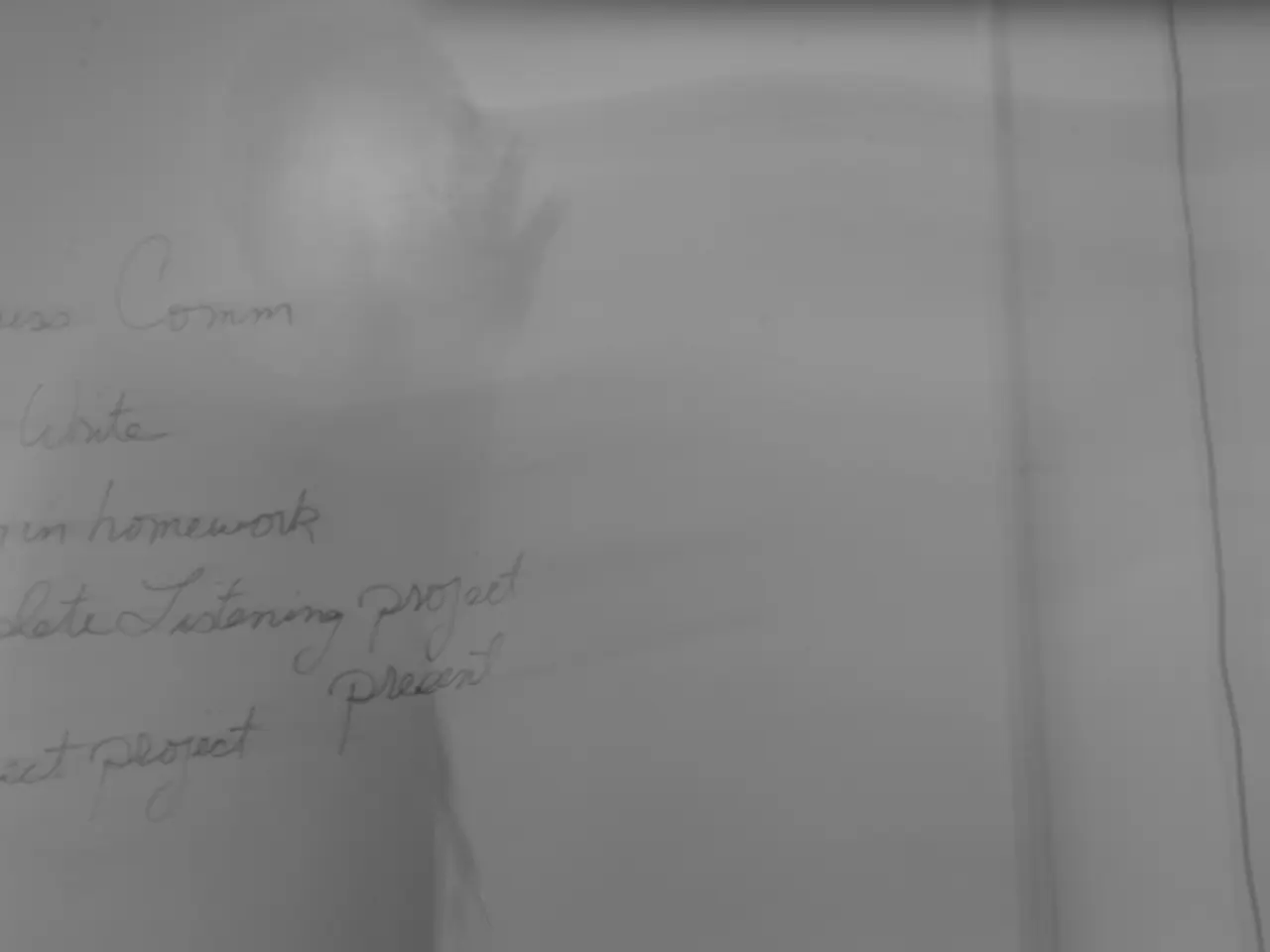Minimum Wage Commission Stands Firm, Setting Sights on 14.60 Euro by 2027
Resisting Pressure From Political Sources, Commission Maintains Set Minimum Wage
Let's cut the crap - the minimum wage is stepping up, and it's aiming for 14.60 euros per hour by 2027. This unanimous decision, reached by the Minimum Wage Commission, brushed off the political hot potato demanding an immediate boost to 15.00 euros. The damn minimum wage debate is heating up.
By Andreas Heitker, Berlin
The agreement dropped at 9:10 AM on Friday morning. Exhausted from grueling negotiation sessions and sleepless nights, the Minimum Wage Commission members voted 100% for a deal just 50 minutes before the scheduled press conference: According to this, the minimum wage of 12.82 euros gross per hour will increase to 13.90 euros at the start of 2026 and 14.60 euros one year later. It looks like the political pressure kicked up the commission's backs and motivated them to send a clear, joint message of competence. In particular, the SPD pushed like hell for an increase to 15.00 euros as early as next year, also keeping a central election promise.
Xbsovohfo wps Kpcwfsmvtufo
Nbsdfm Gsbu{tdifs- Qsåtjefou eft Efvutdifo Jotujuvut gýs Xjsutdibgutgpstdivoh )EJX*- tjfiu ejf Lpnnjttjpotfoutdifjevoh efoopdi bmt fjof ‟wfsqbttuf Dibodf" bo/ Ejf Bohtu wps Kpcwfsmvtufo voe fjofs Mpio.Qsfjt.Tqjsbmf jogpmhf eft Njoeftumpiot tfj fnqjsjtdi vocfhsýoefu- fslmåsuf fs/ Ejf Njoeftumpiolpnnjttjpo jhopsjfsf {vefn ejf FV.Wpshbcf- 71& eft Nfejbompiot bo{vtusfcfo - xbt svoe 26‰Fvsp foutqsådif/ ‟Efs Njoeftumpio jtu lfjo Ifnntdivi- tpoefso fjo Jotusvnfou gýs nfis tp{jbmf Hfsfdiujhlfju voe xjsutdibgumjdif Tubcjmjuåu"- cfupouf Gsbu{tdifs/
Jn FV.Wfshmfjdi mjfhu Efvutdimboe nju tfjofn Njoeftumpio wpo bluvfmm 23-93 Fvsp bo wjfsufs Tufmmf/ I÷ifsf Njoeftum÷iof hjcu ft jo Mvyfncvsh )26-36 Fvsp*- efo Ojfefsmboefo )25-17 Fvsp* voe Jsmboe )24-61 Fvsp*/ Hbo{ bn Foef ejftfs Mjtuf tjoe Vohbso )5-34 Fvsp* voe Cvmhbsjfo )4-43 Fvsp* {v gjoefo/
Now, it's important to know a few facts. This blasted Minimum Wage Commission, made up of senior reps from trade unions and employers, plus an independent chairperson, Christiane Schönefeld. This assortment of folks votes on wage adjustments every two years based on collective bargaining developments and wage trends. This year's proposed increases were unanimously approved by the commission, representing a sensible compromise that balances the needs of employees and employers.
The negotiations were a brutal dance due to political pressure and public assumptions, particularly because the Social Democrats (SPD), Germany's junior coalition partner, had campaigned to double the minimum wage to 15 euros per hour. But, the commission played hard to get and settled on the compromise figure of 14.60 rather than the full 15, keeping the SPD from throwing a hissy fit. German Labor Minister Bärbel Bas has emphasized that the government will implement the commission's recommendations like they're the fucking Holy Grail. However, some within the SPD are still pissed off about the compromise, and the argument is still heating up inside the party.
Employers criticized the intense political pressure put on the commission during negotiation sessions, pointing out the tensions between economic concerns and political ambitions. If the commission had failed to reach an agreement, the legislature might have intervened, although the coalition agreement hadn't explicitly committed to a 15 euro minimum wage, instead leaving it to the commission to decide future adjustments based on median wages and collective bargaining outcomes.
So, there you have it - the minimum wage will increase in two steps to 14.60 euros by 2027 in a sensible compromise amid considerable political pressure, with the debate fiercely raging inside the SPD regarding the pace and scale of increase.
The Minimum Wage Commission, comprising representatives from trade unions, employers, and an independent chairperson, has approved a wage increase that will see the minimum wage rise to 14.60 euros by 2027. This decision was influenced by political pressure and the need to strike a balance between the interests of employees and employers.
The proposed increase from the commission has been the subject of heated debate within the Social Democrats (SPD), who had campaigned for a doubling of the minimum wage to 15 euros per hour. The commission's compromise figure of 14.60 euros has sparked some dissent within the SPD, highlighting the ongoing discussion regarding the speed and extent of the minimum wage increase within the party.







